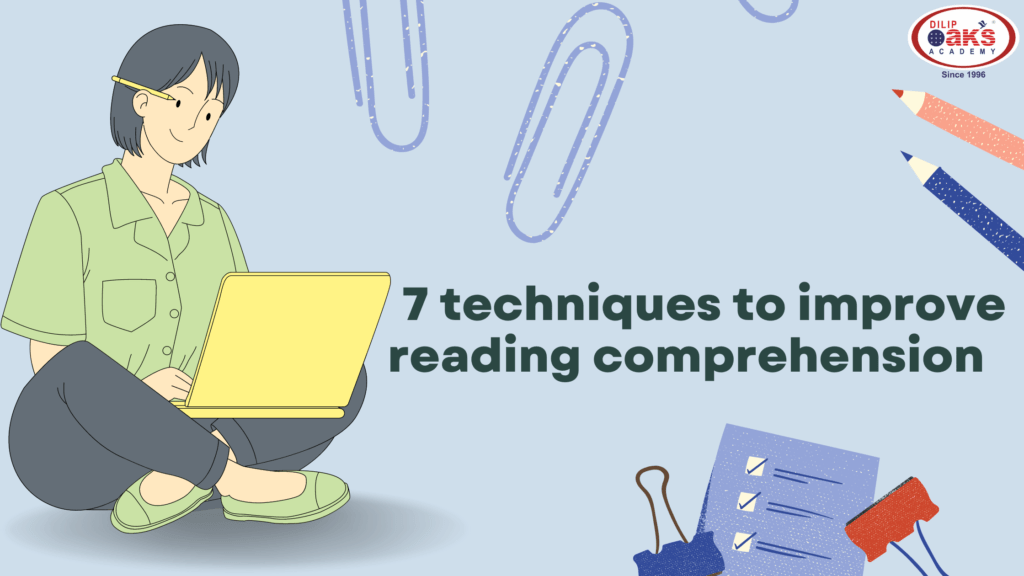The GRE Verbal Reasoning section is often perceived as a challenging hurdle for many test-takers. Within this section, Text Completion and Sentence Equivalence questions can be particularly challenging but fear not- we’re here to guide you. Our expert faculty members have curated valuable tips and strategies to help test-takers like you conquer these question types. By honing your skills in Text Completion and Sentence Equivalence, you can confidently tackle the GRE Verbal Reasoning section and achieve your desired scores.
Understanding Text Completion:
Text Completion questions present a passage with one to three blank spaces, and candidates must select the correct words or phrases to fill these gaps. The challenge lies in choosing the most appropriate words that maintain the coherence and meaning of the passage. To tackle Text Completion effectively, follow these tips:
- Focus on Context: Grasp the passage’s context and main idea to predict the type of words needed
to fill the blanks. - Look for Clues: Analyze surrounding words and sentences for hints about the missing words’
meanings, including transitional phrases and tone. - Eliminate Irrelevant Options: Rule out answer choices that do not fit the passage’s context or alter the intended meaning.
- Consider Logical Flow: Ensure the selected words maintain a coherent and logical flow within the passage.
Mastering Sentence Equivalence:
Sentence Equivalence questions present a single sentence with one blank space. Candidates are tasked with selecting two words from the six given options that create sentences with similar meanings. While the core strategies remain the same for both questions types, here’s how to tackle Sentence Equivalence questions effectively:
- Identify Keyword Clues: Pay attention to crucial keywords in the sentence, as they often provide clues about the missing word’s meaning.
- Antonyms and Synonyms: Consider words with opposite or synonymous meanings that fit the sentence’s context.
- Avoid Extreme Choices: Eliminate answer choices with extreme meanings that do not align with the sentence’s tone or context.
- Utilize the Process of Elimination: Narrow down choices by eliminating unlikely options, increasing the chances of selecting the correct word pair.
Build a Strong Vocabulary
A robust vocabulary is vital for excelling in GRE Verbal Reasoning. Regularly practice learning new words, understanding their meanings, and exploring their usage in context. Dilip Oak Academy offers comprehensive GRE preparation resources, including word lists and mnemonic techniques to aid memorization. Read this blog for more tips to master your vocabulary: 5 Tips from Our Expert Faculty
Read Diverse Texts
Expand your vocabulary and comprehension skills by engaging with a wide range of topics, including literature, academic articles, and news pieces. Read extensively to bolster your language proficiency. Here are some blogs to get you started: GREat Five Minute Reads
Familiarize with GRE Question Styles
Practice with official GRE Verbal Reasoning questions to become familiar with the question styles, formats, and difficulty levels. Analyzing answer explanations for incorrect choices helps you understand common pitfalls and improves your critical thinking skills.
Time Management
Efficient time management is crucial during GRE Verbal Reasoning. Allocate appropriate time to each question, and if you encounter a challenging question, flag it and move on. Later, during the review phase, allocate time to revisit flagged questions. The well-designed study plan and guidance from the expert faculty during the classes will boost your GRE preparation and give you the confidence to ace the test.
Take Full-Length Practice Tests
Simulate the real GRE experience by taking full-length practice tests under timed conditions. Full-length practice tests help build endurance, identify weak areas, and fine-tune your test-taking strategies. This will help you get accustomed to the pressure and time constraints.
By mastering Text Completion and Sentence Equivalence, you can confidently approach the GRE and achieve your dream of pursuing further studies, like MS in the USA.
As a premier study abroad institute in Pune, Dilip Oak Academy is committed to helping students excel in the GRE exam. Our comprehensive GRE preparation resources include coaching- classroom & online with our experienced faculty members, online prep resources with access to over 2000 questions and a self-prep module which includes video lessons. With a focus on excellence, Dilip Oak Academy is your partner in achieving GRE success.
We also offer TOEFL, and IELTS coaching, and guide students with university selection, application essays, and visa counseling under our Admission Counseling Services for USA, Germany and UK. To enroll, call us on 91-020-67444222, 91-8007878495










